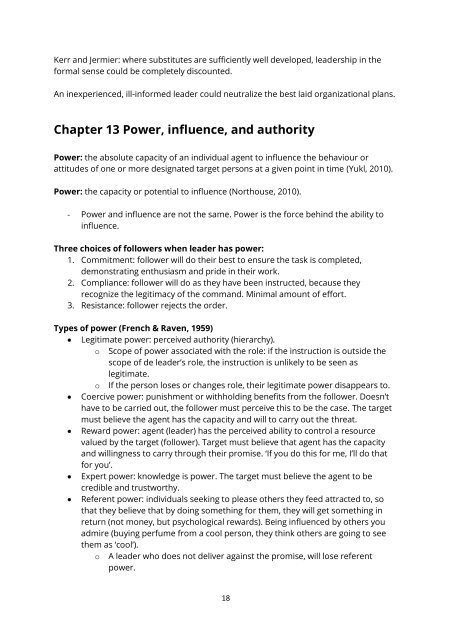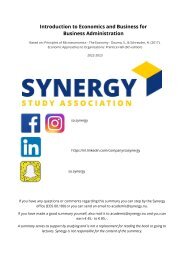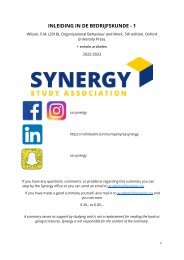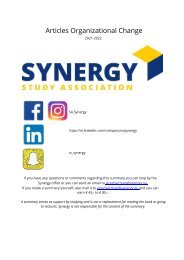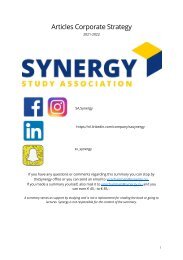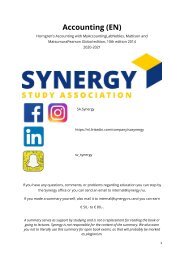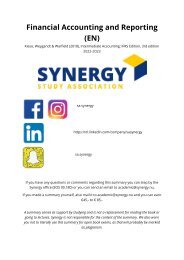Leadership in Organizations
Create successful ePaper yourself
Turn your PDF publications into a flip-book with our unique Google optimized e-Paper software.
Kerr and Jermier: where substitutes are sufficiently well developed, leadership <strong>in</strong> the<br />
formal sense could be completely discounted.<br />
An <strong>in</strong>experienced, ill-<strong>in</strong>formed leader could neutralize the best laid organizational plans.<br />
Chapter 13 Power, <strong>in</strong>fluence, and authority<br />
Power: the absolute capacity of an <strong>in</strong>dividual agent to <strong>in</strong>fluence the behaviour or<br />
attitudes of one or more designated target persons at a given po<strong>in</strong>t <strong>in</strong> time (Yukl, 2010).<br />
Power: the capacity or potential to <strong>in</strong>fluence (Northouse, 2010).<br />
- Power and <strong>in</strong>fluence are not the same. Power is the force beh<strong>in</strong>d the ability to<br />
<strong>in</strong>fluence.<br />
Three choices of followers when leader has power:<br />
1. Commitment: follower will do their best to ensure the task is completed,<br />
demonstrat<strong>in</strong>g enthusiasm and pride <strong>in</strong> their work.<br />
2. Compliance: follower will do as they have been <strong>in</strong>structed, because they<br />
recognize the legitimacy of the command. M<strong>in</strong>imal amount of effort.<br />
3. Resistance: follower rejects the order.<br />
Types of power (French & Raven, 1959)<br />
• Legitimate power: perceived authority (hierarchy).<br />
o Scope of power associated with the role: if the <strong>in</strong>struction is outside the<br />
scope of de leader’s role, the <strong>in</strong>struction is unlikely to be seen as<br />
legitimate.<br />
o If the person loses or changes role, their legitimate power disappears to.<br />
• Coercive power: punishment or withhold<strong>in</strong>g benefits from the follower. Doesn’t<br />
have to be carried out, the follower must perceive this to be the case. The target<br />
must believe the agent has the capacity and will to carry out the threat.<br />
• Reward power: agent (leader) has the perceived ability to control a resource<br />
valued by the target (follower). Target must believe that agent has the capacity<br />
and will<strong>in</strong>gness to carry through their promise. ‘If you do this for me, I’ll do that<br />
for you’.<br />
• Expert power: knowledge is power. The target must believe the agent to be<br />
credible and trustworthy.<br />
• Referent power: <strong>in</strong>dividuals seek<strong>in</strong>g to please others they feed attracted to, so<br />
that they believe that by do<strong>in</strong>g someth<strong>in</strong>g for them, they will get someth<strong>in</strong>g <strong>in</strong><br />
return (not money, but psychological rewards). Be<strong>in</strong>g <strong>in</strong>fluenced by others you<br />
admire (buy<strong>in</strong>g perfume from a cool person, they th<strong>in</strong>k others are go<strong>in</strong>g to see<br />
them as ‘cool’).<br />
o A leader who does not deliver aga<strong>in</strong>st the promise, will lose referent<br />
power.<br />
18


